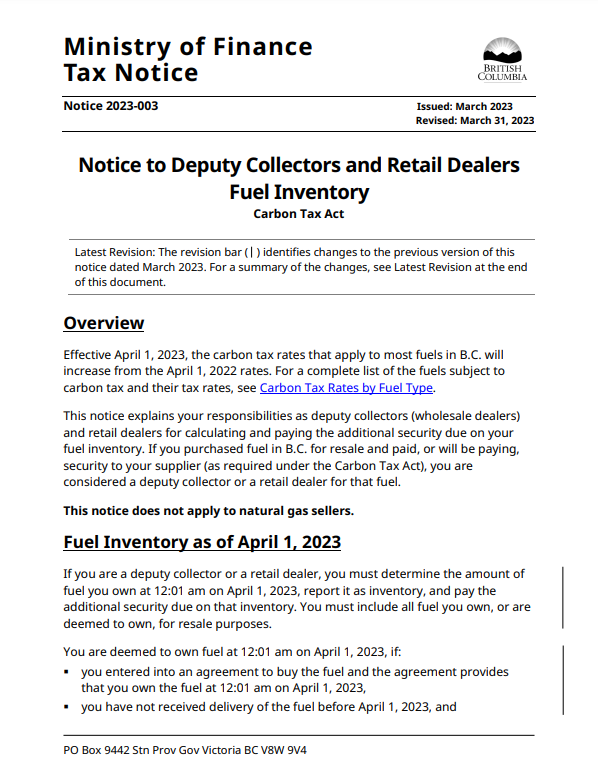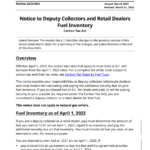When Is Carbon Tax Rebate 2024 – The year 2024 is marked by significant changes in environmental policies, particularly in the context of reducing carbon emissions. Governments around the world are implementing various measures to encourage carbon reduction, one of which is the Carbon Tax Rebate. In this article, we will delve into what the Carbon Tax Rebate is, how it functions, its eligibility criteria, and the broader impact it has on our environment, economy, and society.
What Is Carbon Tax?
Carbon tax, also known as a carbon pricing mechanism, is a policy aimed at reducing carbon dioxide emissions into the atmosphere. It is essentially a tax levied on the carbon content of fossil fuels. The idea behind this tax is to create an economic incentive for individuals and businesses to reduce their carbon footprint by utilizing cleaner energy sources and adopting sustainable practices.
The Purpose of Carbon Tax
The primary purpose of carbon tax is to address climate change by encouraging the reduction of greenhouse gas emissions. It is an essential tool in combatting global warming and its adverse effects, such as rising sea levels, extreme weather events, and damage to ecosystems. By placing a price on carbon emissions, governments aim to create a financial incentive for industries and individuals to lower their carbon footprint.
How Carbon Tax Rebate Works
Carbon Tax Rebate is an initiative designed to offset the financial burden that may be placed on individuals and households due to carbon tax. It provides eligible recipients with a refund or rebate for a portion of the carbon tax they pay. This encourages responsible energy consumption and promotes the transition to cleaner energy sources.
Carbon Tax Rebate in 2024
In 2024, the Carbon Tax Rebate continues to play a crucial role in environmental policies. It serves as a financial relief for those affected by carbon taxation. The specific details, such as the rebate amount and eligibility criteria, may vary from one country to another. It’s essential to stay informed about your local government’s policies and guidelines.
Eligibility Criteria
To qualify for the Carbon Tax Rebate, individuals and households must meet certain criteria. Generally, eligibility is determined by factors such as income, family size, and energy consumption. Low-income households may receive a more substantial rebate to help alleviate the financial strain of carbon taxation.
How to Claim Your Carbon Tax Rebate
Claiming your Carbon Tax Rebate is typically a straightforward process. You will need to provide the necessary documentation and information, such as proof of income, tax records, and energy consumption data. Consult your local tax authority or government website for detailed instructions on how to claim your rebate.
Importance of Reducing Carbon Emissions
Reducing carbon emissions is crucial for mitigating the effects of climate change. The implementation of carbon taxes and rebates plays a pivotal role in motivating individuals and businesses to adopt sustainable practices and invest in renewable energy sources.
Government Initiatives
Governments worldwide are increasingly recognizing the urgency of addressing climate change. They are implementing carbon pricing mechanisms, such as carbon tax, as part of their broader environmental strategies. These initiatives are not only aimed at reducing emissions but also at promoting innovation and green technologies.
Environmental Benefits
The environmental benefits of carbon tax and rebates are substantial. By reducing carbon emissions, we can slow down the progression of climate change, preserve ecosystems, and protect biodiversity. Cleaner air and water, along with a healthier planet, are some of the direct benefits.
Economic Implications
Carbon tax and rebates can have economic implications as well. While it may increase the cost of fossil fuels, it also stimulates investments in renewable energy and job creation in the green sector. Over time, these economic shifts can lead to a more sustainable and robust economy.
The Global Perspective
The issue of carbon tax is not limited to one country; it’s a global concern. Many nations are working together to set international standards for carbon pricing. This collaborative effort ensures that no country can gain a competitive advantage by avoiding carbon taxation.
Challenges in Implementing Carbon Tax
Implementing carbon tax policies is not without challenges. Some argue that it places an unfair burden on low-income households, while others claim it might lead to increased energy costs. Addressing these challenges requires careful consideration and fine-tuning of the policy.
Public Opinion and Controversies
Public opinion on carbon tax and rebates varies. While some view it as a necessary step to combat climate change, others are skeptical of its effectiveness. Public education and awareness campaigns are essential to garner support and address misconceptions.
Conclusion
In conclusion, the Carbon Tax Rebate in 2024 plays a crucial role in addressing climate change and encouraging responsible energy consumption. It provides financial relief to eligible individuals and households affected by carbon taxation. While there are challenges and controversies surrounding carbon tax, its environmental and economic benefits are undeniable.

